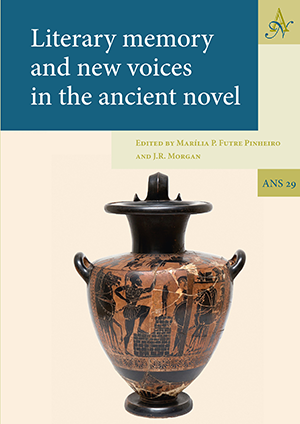Ancient Narrative Supplementum 8 is the first volume to be dedicated entirely to parallel readings of the Greek and the Roman novel. As a rule, publications taking a comprehensive look at the ancient novel treat the Greek and the Roman novels independently of each other, or at most discuss standard thematic categories. It is intriguing that a sharp distinction between the Greek and the Latin novels should have ever existed and that it should be tacitly maintained at the present time. Of the three surviving Latin novels, Apuleius’ Metamorphoses has a Greek model, Petronius’ Satyrica bears distinct traces of Greekness, and the Historia Apollonii strongly resembles the Greek ideal novel, especially Xenophon’s Ephesiaka. The discovery of new papyrus fragments of Greek fiction (Lollianos’ Phoinikika, the Iolaos and the Tinouphis fragments) has shown that low-life, comic, and sensational features are not the exclusive province of the Latin novel. Recent chronological revisions have squeezed the dates of the earliest Greek novels into the period between 41 and 75 A. D., thus envisaging the “birth” of the Greek novel and that of the Roman Satyrica as contemporary or near-contemporary events. The need to re-examine the relations between the two main traditions of the ancient novel in the context of a unified Greco-Roman tradition emerges today as more urgent than ever. The portrayal on the cover page of this volume of Echo and Narcissus, of self-reflection and reduplication of sound, symbolizes a pictorial challenge to look at the dialectics of the Greek and the Latin novels and appreciate their intimate relationship.
The parallel readings of the present volume explore various issues in Greco-Roman fiction: political accommodation in coming-of-age novels, the language and practice of magic, narratives of failure, textual considerations and narrative meaning, hidden authors, proposals and criteria for dating, the access to knowledge, plot structures, religion and narrative, the fortunes of Athenian Hellenism, vision and narrative, attitudes towards Roman imperial rule, and the motif of the stolen cup.
Reviews
A. Markantonatos, BMCR 2010.02.42
Françoise Létoublon, Phoenix (2010) 64, 176-178
John Birchall, Scholia Reviews (2009) 18
Stefan Tilg, Ordia Prima 7 (2008), 234-241
Judith Hindermann, Museum Helveticum (2008) 65, 232
Sarah Rey in Les Etudes Classiques (?) ?, 269-270
STEPHEN HARRISON AND MAAIKE ZIMMERMAN
Acknowledgements VII
MICHAEL PASCHALIS AND STAVROS FRANGOULIDIS IX
Introduction
1 GENERAL 1
JEAN ALVARES
The Coming of Age and Political Accommodation in the Greco-Roman Novels 3
GARETH SCHMELING
Narratives of Failure 23
CONSUELO RUIZ-MONTERO
Magic in the Ancient Novel 38
NIALL W. SLATER
Posthumous Parleys: Chatting Up the Dead in the Ancient Novels 57
MICHAEL PASCHALIS
The Greek and the Latin Alexander Romance: Comparative Readings 70
2 PETRONIUS AND OTHERS 103
JOHN MORGAN
Kleitophon and Encolpius: Achilleus Tatius as Hidden Author 105
EWEN BOWIE
Links Between Antonius Diogenes and Petronius 121
KEN DOWDEN
A Lengthy Sentence: Judging the Prolixity of the Novels 133
ANDREW LAIRD
The True Nature of the Satyricon? 151
3 APULEIUS AND OTHERS 169
ROMAIN BRETHES
Who Knows What? The Access to Knowledge in Ancient Novels: the Strange Cases of Chariton and Apuleius 171
STAVROS FRANGOULIDIS
Transforming the Genre: Apuleius’ Metamorphoses 193
STEPHEN HARRISON
Parallel Cults? Religion and Narrative in Apuleius’ Metamorphoses and Some Greek Novels 204
STEVEN D. SMITH
Wonders Beyond Athens: Reading the ‘Phaedra’ Stories in Apuleius and Heliodoros 219
KIRK FREUDENBURG
Leering for the Plot: Visual Curiosity in Apuleius and Others 238
ELLEN FINKELPEARL
Apuleius, the Onos, and Rome 263
MAAIKE ZIMMERMAN
Aesop, the ‘Onos‘, The Golden Ass, and a Hidden Treasure 277
Abstracts 293
List of Contributors 299
Indices 302
Index locorum 302
General Index 304









